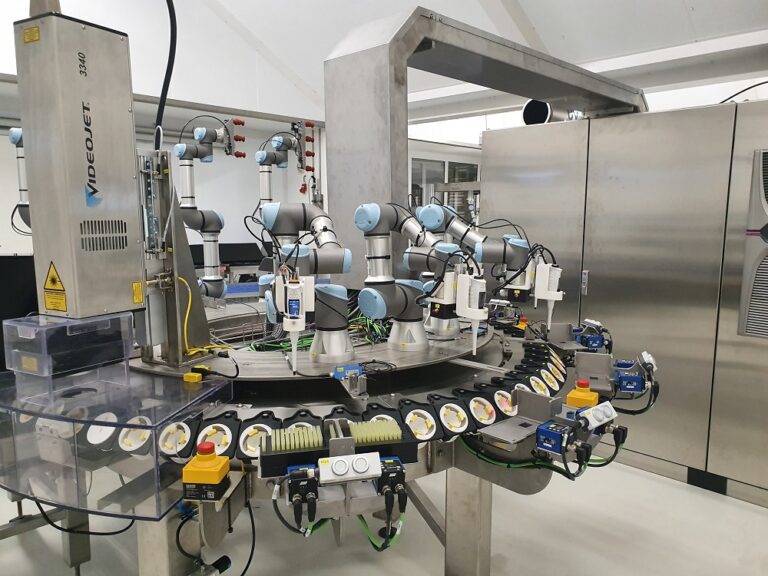Two poultry companies have been awarded silver medals in the Eurotier innovation awards, held in lieu of the biennial trade show, which was cancelled this year due to coronavirus.
SELEGGT was awarded a silver medal, in recognition of its innovative sex selection technique for eggs in the egg laying poultry sector. The culling of day-old male chicks has become a societal and political issue, with a ban on this practice being considered in some European countries. In-ovo sex determination is regarded as an alternative, with hormone analysis on the 8th or 9th day of incubation currently being the most extensively developed and commercially useable method.
The SELEGGT Acus sampling system, developed by respeggt GmbH for this purpose, is already in practical use. Sampling the test fluid from the allantois using a needle, this system is only partially automated. The risk of injuring the allantoic membrane exists, which can lead to a reduction in the hatching rate. The hourly capacity of a single sampling unit for this system is around 600 eggs.
The innovative SELEGGT Circulus system is a significant leap forward compared to the predecessor system. Operating fully automatically, the allantoic fluid samples are generated in a non-invasive way. Cleaning the sampling needles is therefore no longer necessary and the sampling time has been reduced to just one second per egg. In three-shift operation with 20 hours of operation per day, one SELEGGT Circulus sampling unit therefore has a weekly capacity of 360,000 hatching eggs, corresponding to 150,000 to 180,000 laying chicks, a significant increase in performance in comparison with the predecessor system.
Non-invasive sampling and the vastly increased hourly capacity have established the prerequisites for universally replacing the previous culling of male chicks in hatcheries with in-ovo sex determination.
Separately, NECTRA’s on tray egg refilling system was also awarded a silver medal from Eurotier.
The hatching eggs from broiler parent livestock farms are delivered to central hatcheries, where they are sorted according to quality and weight before being placed into the incubator. In addition, eggs that are not positioned with the blunt end pointing upwards in the tray have to be turned. This leads to a high number of incompletely filled trays that have to be manually refilled. Often, the eggs are also transported on conveyors where they can come into direct contact with one another, possibly resulting in damaged shells.
In the new system by NECTRA, the eggs are transferred from the delivery trays to egg moving cups that move freely on a transport conveyor. Here, the eggs can be automatically and individually sorted according to quality and weight and can also be turned if they are positioned incorrectly. The freely moving egg cups are backed up for transfer to the hatching trays, unoccupied egg cups are automatically removed and the remaining, filled egg cups are then transferred automatically to the hatching trays so that no gaps occur.
The system significantly reduces the likelihood of damaging the egg shells and automates the hatching tray filling process. This considerably lightens the workload and leads to an improvement in hatching rates in the broiler chick hatcheries.


